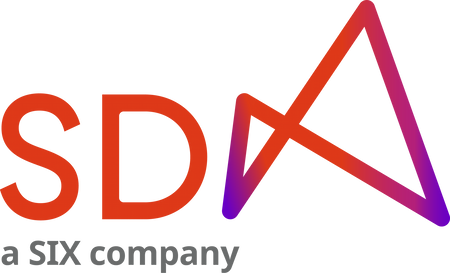InCore Bank can now offer Ethereum staking capabilities that are fully compliant with Know-Your-Client (KYC) and Anti-Money-Laundering (AML) regulations to their clients. In this collaboration, InCore Bank provides crypto brokerage, banking operations and custody services, while SDX Web3 provides crypto custody and non-custodial-staking services.
The Zurich-based private bank Maerki Baumann launched its crypto strategy in 2019. Apart from corporate accounts for companies focusing on blockchain technology and crypto applications, it offers services in crypto trading and custody in collaboration with InCore Bank. Maerki Baumann will continue to expand its crypto offering by making the new Ethereum staking services available to its private and corporate tech banking clients.
Mark Dambacher, CEO InCore Bank, stated, “We perceive an increasing interest in staking and ways to participate in the decentralized economy. InCore Bank’s fully integrated and future-oriented staking services via segregated wallets, enable us to offer staking to our clients within a convenient, secure, regulated and tax compliant setting. We are proud to be part of this strategic alliance with SDX”.
David Newns, Head of SDX, adds, “This collaboration between established digital asset institutions is the first of its kind in Switzerland. We are strengthening the Swiss digital asset ecosystem by enabling key market players to provide value adding capabilities like Ethereum custody and staking that their clients are asking for.”
What is staking?
Blockchain networks are based on the principle of decentralization, there is no central entity that decides on the correct transaction history. Nevertheless, a consensus mechanism is needed to ensure in a decentralized pattern that transactions are validated in correct order and in a secure manner. Blockchains typically reach consensus in two ways, either by so-called Proof-of-Work (PoW) or Proof-of-Stake (PoS) mechanisms.
In PoS blockchains like Ethereum, to guarantee consensus, no power-intensive computing power is used. Rather, capital needs to be expended in the form of the blockchain’s own coin. These coins must be “staked”, i.e. made available to the network and bound by it for the staking period. For individuals who hold digital assets of proof-of-stake networks, staking is mandatory in order to avoid dilution of their own position. Due to this fact, it can be assumed that in the near future, there will be an increasing merger of custody and staking. Staking is an umbrella term used to denote the act of pledging crypto-assets to a cryptocurrency protocol to earn rewards in exchange.
Staking allows users to participate in securing the network by locking up tokens. The “stakers” become validators who add new transactions to the respective blockchain. At the same time, the validators follow the so-called consensus rules. These set the rules of the game according to which the various network participants have to comply. If, as a validator, you violate the network’s consensus rules during this process, you put your own capital at risk in the form of the coins you have staked. This ensures validators have an incentive to abide by the rules.
About InCore Bank
InCore Bank is a B2B transaction bank founded in 2007 and trusted by numerous private banks, securities firms, asset managers, institutional investors and fintech companies. The Swiss company with a banking and securities firm license stands for a highly capable comprehensive package: from traditional banking to digital assets, outsourcing, white-label investment products and other services. In 2020, InCore Bank became the first B2B bank to receive FINMA approval for banking services with digital assets. This makes it the first choice for companies when it comes to secure access to digital assets. InCore Bank feels at home in both the traditional and digital world. It operates the largest private banking hub based on Finnova Banking Software. www.incorebank.ch
Media Inquiries
Mark Dambacher
CEO
+41 44 403 93 00
About Maerki Baumann
Maerki Baumann & Co. AG was founded in 1932. For generations, it has focused on its core competencies in the areas of investment advice and asset management as well as in serving independent asset managers. Steeped in tradition, the private bank sets itself apart as a non-listed family company that puts its faith in independence, security and transparency. With its innovative modular investment approach and comprehensive crypto services, the private bank underlines its claim of combining the tried-and-tested with the new. The bank currently manages more than CHF 9 billion in client assets, primarily from Switzerland and Germany. Further information can be found at www.maerki-baumann.ch
Media Inquiries
Dr. Stephan A. Zwahlen
CEO
+41 44 286 25 25
About SDX Web3 Services
SDX Web3 is a newly founded business line focusing on supporting our clients’ Web3 activities. As part of SIX, SDX Web3 is subject to the Group’s high quality and security standards in providing institutional grade infrastructure services for which SIX and SDX are well known. web3.sdx.com

